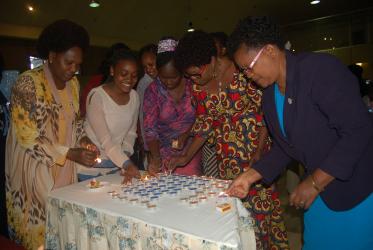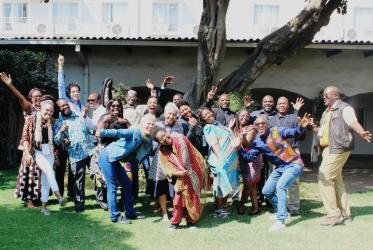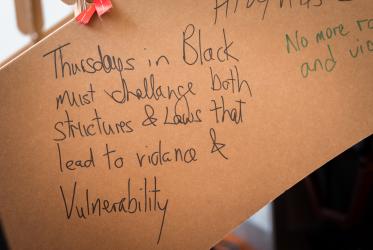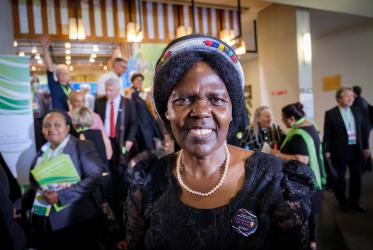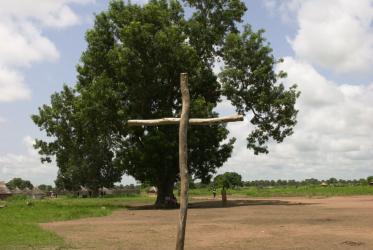Displaying 61 - 80 of 142
Young people in Togo: “Hear our voice! We want to tell our stories!”
07 November 2019
Youth leaders: “We will stop at nothing” to end HIV and violence
17 October 2019
Churches in southern Africa stand against violence, xenophobia
10 October 2019
Rev. Damon Mkandawire: “A man is a gender justice champion”
03 October 2019
Kenya schools invest in young people to end new HIV infections
18 September 2019
When you strike the women, you strike a rock
18 September 2019
Frontline advocates in Uganda are putting a stop to HIV stigma
16 September 2019
Moravian Church in Tanzania launches Thursdays in Black
10 September 2019
Dr Agnes Abuom: “Enough is enough”
05 September 2019
WCC treatment manuals address HIV challenges in Uganda
02 August 2019

